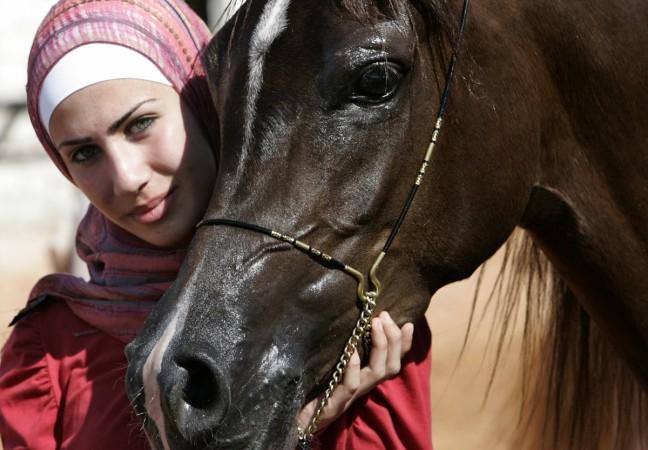
Scientists have discovered that horses can communicate with humans and express themselves by pointing at symbols.
The scientists coached horses for 15 minutes per day for around two weeks and fed them carrots depending on their performance. The horses were taught to use their head to touch the board and express if they wanted to wear a blanket. The request made was not random as it was matching with the weather.
The research was led by Dr Cecilie Mejdell of the Norwegian Veterinary Institute. "I think our study adds to the knowledge on horse cognition - about what horses are able to learn and how they think," Dr Mejdell told BBC News.
"Horses are often considered to be not very intelligent, but this shows that using the right methods they can actually communicate and express their opinions and they can take choices that seem sensible to us even," she added.
The scientists joined hands with a horse trainer with an aim of teaching 23 horses belonging to different breeds about how to interact and commune with humans.
The learning speed of these horses varied and all the 23 horses successfully learnt and performed well within two weeks of coaching.
The researchers said that the horses requested for a blanket when it was cold, windy and wet and did not ask for it when it was warm and sunny. This showed that the horses were intelligently expressing their choice which was based on the weather and their needs, and that they did not blindly following their trainers.
The researchers are now looking forward to using such techniques to ask more questions and communicate more with the horses. This method would help the horse owners in training their horses.
"The training method would be useful in animal welfare," said Karen McComb, professor of animal behaviour and cognition at the University of Sussex.
"This is a really interesting and innovative study that has conceived a very novel way of getting at what is going on in the mind of the horse," she added.
An earlier research had revealed that horses can differ between humans' happy and angry facial expressions. Researchers believe that it is an outcome of horses being a domestic animal which allows them to recognise the different behaviours portrayed by humans.

















